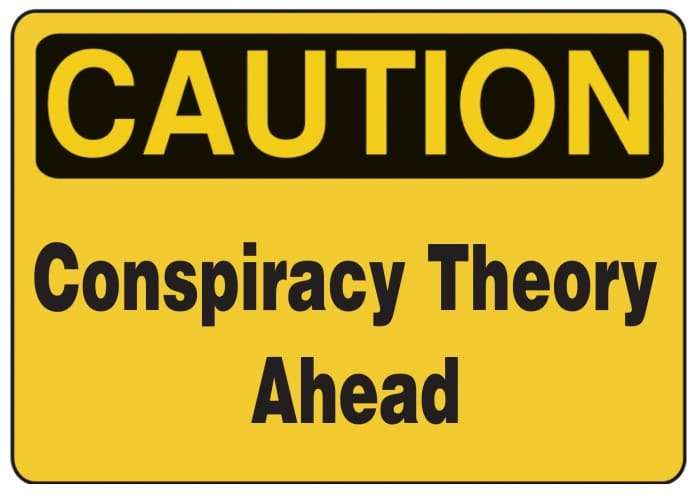The Volokh Conspiracy
Mostly law professors | Sometimes contrarian | Often libertarian | Always independent
Political ignorance, partisan bias, and belief in conspiracy theories

A recent YouGov survey confirms what we know from numerous previous polls: Many Americans believe dubious conspiracy theories. Washington Post columnist Catherine Rampell highlights some of the more disturbing results.
Some 38 percent of Americans, including 49 percent of Republicans and 46 percent of Trump supporters, believe that the ridiculous "Pizzagate" theory that Clinton staffers sent coded e-mails suggesting involvement in pedophilia and Satanic ritual abuse is at least "probably true." Despite Trump's own belated disavowal of birtherism, 36% of all respondents and 55% of Trump voters still believe that it is "definitely" or "probably" true that President Obama was born in Kenya. Similarly, 37 percent of all respondents and 52% of Democrats believe it is at least "probably true" that "Russia tampered with vote tallies in order to get Donald Trump elected President," an improbable claim for which there is no evidence (though there is extensive evidence that Russian operatives hacked Democratic National Committee e-mails for the purpose of helping Trump).
Not all of the conspiracy theories addressed in the YouGov poll actually have a big impact on public opinion. I suspect, for example, that many of the respondents had never even heard of Pizzagate until they saw it in the survey. But it is still notable that so many are credulous enough to believe such claims when they do hear them.
What causes such extensive belief in conspiracy theories? One key cause is widespread political ignorance. Most of the public knows very little about politics and public policy, in large part because such ignorance is rational behavior for most voters. If your only reason to become informed about politics is to make better decisions at the ballot box, that isn't much of an incentive at all, given the very low probability that your vote will make a difference to the outcome. People who don't know much about how the political system works find it more difficult to separate plausible claims from implausible ones.
Rational ignorance helps explain why people are much more likely to believe outlandish political conspiracy theories than similar ones about their personal lives. Most of us have very strong incentives to be well-informed about issues in our lives where our choices are likely to make a difference. The person who falsely believes that his family members or co-workers are conspiring against him will impose tremendous costs on himself if he acts on that assumption. By contrast, individual voters suffer no such obvious penalties when they embrace political conspiracy theories. That's one reason why millions of people who embrace absurd conspiracy theories about political events are generally rational in their everyday lives.
But belief in conspiracy theories is not just the result of simple ignorance. Partisan bias also plays a major role. It is no accident that Republicans are more likely to believe conspiracy theories that make Hillary Clinton and the Democrats look bad, while Clinton supporters are more likely to believe those that reflect negatively on Trump. Many people evaluate political information not as truth seekers, but as "political fans" cheering on Team Red or Team Blue. They are all too ready to accept anything that supports their preexisting views, while ignoring, skewing, or rejecting contrary evidence. Such tendencies have become more severe in an age of increased polarization where partisan bias and hatred of the opposing party and its supporters have grown.
The perverse incentives that cause political ignorance also help exacerbate partisan bias. Because there is so little chance that any one vote will make a difference, voters have little incentive to evaluate political information objectively, and carefully consider opposing views. Unlike in many other aspects of their lives, they can afford to indulge political biases with very little chance of of suffering any adverse consequences. Just as it is rational for most voters to be ignorant about politics, it is also rational for them to make little effort to control their biases in evaluating new political information.
Sadly, however, rational behavior by individuals can lead to terrible collective outcomes. It makes little difference whether any one voter is ignorant or believes ridiculous conspiracy theories. But when millions do so, it degrades the quality of government and political discourse.
There is no quick and easy fix for the interlinked problems of political ignorance and partisan bias. But it is long past time that we start taking these problems seriously, and consider various systemic changes that might reduce their impact.
There is also much that individual voters can do to improve their reasoning and reduce bias. Given the perverse incentives of the political process, I am not optimistic that many will do so. But even modest movement in the right direction might help.


Show Comments (0)